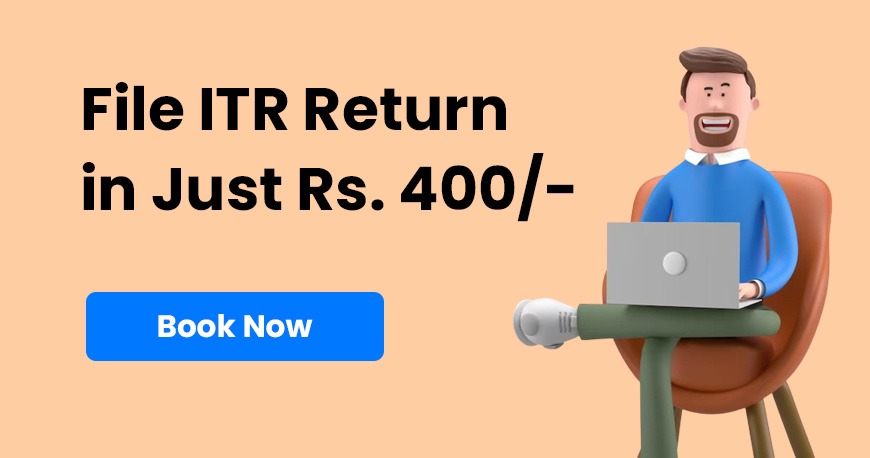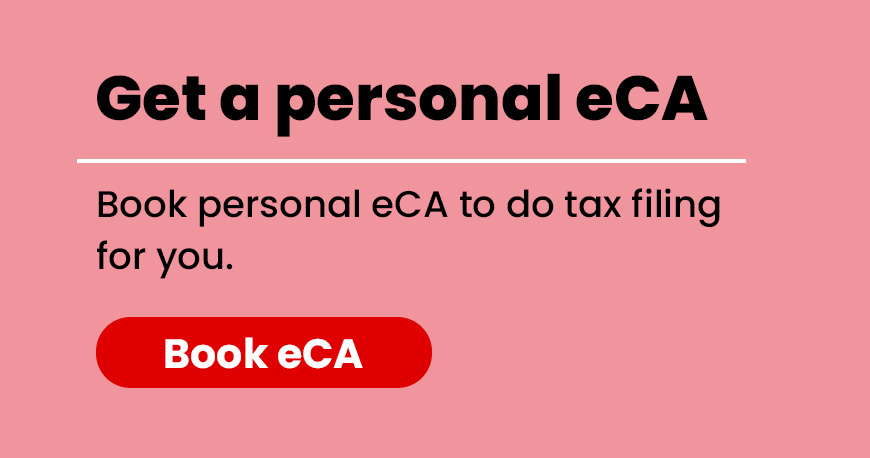Section 54f of The Income Tax: Exemption Under Section 54F For Capital Gains
When it comes to taxes and selling property, the words "capital gains" might sound intimidating. But fear not! There's a bright side to this story. It's called Section 54F of the Income Tax Act.
Section 54f of The Income Tax: Exemption Under Section 54F For Capital Gains
When it comes to taxes and selling property, the words "capital gains" might sound intimidating. But fear not! There's a bright side to this story. It's called Section 54F of the Income Tax Act.
Think of it as your tax-saving superhero, here to rescue you from hefty tax bills and set you on a path to financial growth. This article will share all the ins and outs of Section 54F of the Income Tax Act. So, without further ado, let’s uncover “how Section 54F can help you keep more of your money”.
What is Section 54F of The Income Tax?
Section 54F of the Income Tax Act, 1961, provides a means to claim a tax exemption on long-term capital gains generated from the sale of a capital asset, excluding a house property.
In simpler terms, if you sell assets such as shares, bonds, jewelry, gold, or similar items, and then use the proceeds to buy or build a house property, the profits from these assets can be exempted from taxation under Section 54F.
|
Number of Shares That You Own |
5,000 |
|
Purchasing Price of The Shares |
Rs. 100 |
|
Total Purchasing Price of The Shares |
Rs. 500,000 |
|
Selling Price of The Share |
Rs. 200 |
|
The Amount Obtained From Selling The Shares |
5000*200 = Rs. 10 Lakhs |
|
Earned Capital Gains |
10 Lakhs - 5 Lakhs = Rs. 5 Lakhs |
If you choose to invest the sale proceeds of 10 lakh Indian Rupees into a house property, Section 54F of the Income Tax Act ensures that the 5 lakh Indian Rupees in capital gains will remain untaxed.
However, if you decide to invest the 10 lakh Indian Rupees in any other asset, the 5 lakh Indian Rupees in gains would then become subject to taxation in your hands. This is the fundamental operation of Section 54F.
Conditions For Availing Exemption Under Section 54F
To qualify for tax exemption under Section 54F of the Income Tax Act, certain conditions need to be met. This exemption is primarily for individuals and Hindu Undivided Families (HUFs) when they sell a long-term capital asset and invest in a residential house. For more clearer understanding, we have mentioned below the major conditions. Read On Carefully:
1. Eligibility: The exemptions under Section 54F are available to both individuals and Hindu Undivided Families (HUFs).
2. Type of Asset: The capital gain that you're seeking to exempt should come from the sale of a long-term capital asset, except for a residential house.
3. Single Property Ownership: You should not own more than one house at the time you claim the exemption.
4. Timelines: If you plan to buy a house, it must be purchased within one year or two years after selling the capital asset. If you're constructing a house, it must be completed within three years from the sale of the capital asset.
5. Holding Period: The house you purchase or construct must not be sold within 3 years from the date of its acquisition; otherwise, the exemption will be revoked.
6. No Second Property: The exemption under Section 54F will be withdrawn if you purchase another house (apart from the one you initially bought) within one year from the date of selling the capital asset or if you construct another house within three years.
7. Deadline for Investment: If you cannot use the sale proceeds to buy or construct the house before the due date for filing your Income Tax Return (ITR) in the year when you sold the capital asset, you should transfer the funds to a 'Capital Gains Account' with a bank.
These conditions aim to encourage individuals to invest in residential property and provide tax benefits while ensuring that the rules are followed to prevent misuse of the exemption.
Conditions When You Can Not Get Exemptions u/s 54F
Under Section 54F of the Income Tax Act, if you fall any of the below-mentioned conditions, you won't be eligible for exemptions in the following situations: Here are the key conditions to be aware of:
1. Already Own Multiple Houses: If you already own more than one house at the time of selling your asset, you can not claim exemptions under Section 54F. However, if you buy a house using the long-term capital gains, it's exempt from this rule.
2. Building a New House Quickly: If you construct another residential property within three years from the sale date of your original asset, you can not avail the Section 54F exemption for the newly built property.
3. Buying Another House Too Soon: If you purchase an additional house within one year from the date of selling your original asset, you can not claim Section 54F exemptions for the newly purchased house.
These conditions are in place to ensure that the Section 54F exemptions are used as intended and are not misused for tax avoidance.
Understanding How Much of Your Gain Can Be Exempted Under Section 54F
Let's understand this with an example to see how capital gains exemptions work under Section 54F.
Example: Imagine an investor who has sold capital assets worth Rs. 50 lakhs. The capital gains generated from this sale amount to Rs. 10 lakhs. The investor decides to reinvest this sum in the purchase or construction of a residential house.
Now, there are two possible scenarios:
Scenario 1: Reinvesting the Full Amount
If the investor reinvests the entire Rs. 10 lakh from the sale of assets to buy or construct a residential house, they can claim an exemption on the entire capital gain of Rs. 10 lakhs. In other words, the full capital gain amount is tax-free under Section 54F.
Scenario 2: Partial Reinvestment
In this scenario, the investor chooses to reinvest only a part of the money received from the sale in the construction or purchase of the residential property. Consequently, only a proportionate amount of the long-term capital gain can be exempted under Section 54F.
To calculate this proportionate amount, you can use the following formula:
Exemption u/s 54F = (Amount reinvested / Net Consideration) X Long-Term Capital Gain (LTCG)
So, if the investor, for instance, reinvests Rs. 4 lakhs in a new house from the Rs. 10 lakh capital gain, they can claim an exemption on Rs. 4 lakhs of the capital gain. The remaining Rs. 6 lakhs would remain taxable.
This allows investors to benefit from Section 54F even if they choose not to reinvest the entire capital gain amount in a residential property. The exemption is proportional to the amount reinvested.
Difference Between Section 54 And 54F
Section 54 and Section 54F of the Income Tax Act are both provisions that offer tax exemptions on the capital gains generated from selling a property, but they have different eligibility criteria and focus on distinct types of properties. Here's a simplified comparison:
|
Particulars |
Section 54 |
Section 54F |
|
Type of Property |
This section applies when you sell a residential property, such as a house or an apartment. |
Section 54F comes into play when you sell a capital asset other than a house property. This can include assets like shares, bonds, gold, jewelry, or any long-term capital asset. |
|
Exemption on Capital Gains |
If you make a profit from selling a residential property, you can claim an exemption on the capital gains tax if you reinvest the proceeds in another residential property. |
If you make long-term capital gains from selling a non-house property, you can claim an exemption on those gains by investing the sale proceeds in a residential property. |
|
Eligibility |
This provision is available to both individuals and Hindu Undivided Families (HUFs). |
This provision is available to both individuals and Hindu Undivided Families (HUFs). |
|
Timeline |
You must purchase the new residential property within one year before or two years after selling the original asset or construct a new one within three years. |
You must purchase the new residential property within one year before or two years after selling the original asset or construct a new one within three years. |
|
Number of Houses |
You should not own more than one house, apart from the one you're buying or constructing, at the time of claiming the exemption. |
Just like in Section 54, you should not own more than one house, apart from the one you're buying or constructing, at the time of claiming the exemption. |
In Short:
Section 54 is for residential property sellers. It gives tax breaks when you reinvest in another home.
Section 54F is for those selling assets like shares or gold, not homes. It offers tax breaks when you use the money to buy a home.
Both encourage investing in homes and ease the tax on profits, but they apply to different kinds of assets.
Wrapping it up
Section 54F allows you to avoid taxes on the profits you make from selling assets like shares, bonds, jewelry, and more. To qualify, you need to invest the sale proceeds in a residential property. However, you must follow certain conditions, like not owning multiple houses and sticking to specific timelines. If you meet these criteria, Section 54F can be your ally in saving taxes and boosting your financial well-being.
FAQs
Who is eligible to claim the benefit under Section 54F?
Section 54F benefits are available to individuals and Hindu Undivided Families (HUFs) who sell a non-residential capital asset and invest the sale proceeds in a residential property.
What is the timeline for reinvesting in a residential property under Section 54F?
To claim the exemption, the new residential property must be purchased within one year before or two years after selling the original asset, or it must be constructed within three years from the date of sale.
Is there a limit on the amount of capital gain that can be exempted under Section 54F?
There is no specific limit on the amount of capital gain that can be exempted under Section 54F. However, the entire capital gain can be exempted if the full sale proceeds are reinvested in the residential property.
What happens if the reinvestment conditions of Section 54F are not met?
If the conditions, such as the timeline for reinvestment or owning more than one residential property, are not met, the tax exemption under Section 54F may be withdrawn, and the capital gains would become taxable.
Also Read: Section 194BA: TDS on Winnings from Online Games Under Section 194BA
FILING YOUR INCOME TAX RETURN F.Y 2022-23 (A.Y. 2023-2024) WITH MYITRONLINE
Income tax filing deadline is right around the corner. If you haven’t filed yet, do it now for FREE on Myitronline! Avoid last minute rush and file your tax return today on MYITRONLINE in Just 5 mins.(www.myitronline.com)
If you are looking for eCA assistance to file your income tax return/ GST, you can opt for MYITRONLINE eCA assisted plan starting
Upload Salary Individual Form-16
If you have any questions with filing your tax return, please reply to this mail. info@myitronline.com OR call 9971055886.
Note-All the aforementioned information in the article is taken from authentic resources and has been published after moderation. Any change in the information other than fact must be believed as a human error. For queries mail us at marketing@myitronline.com
Krishna Gopal Varshney
An editor at MyitronlinenewsKrishna Gopal Varshney, Founder & CEO of Myitronline Global Services Private Limited at Delhi. A dedicated and tireless Expert Service Provider for the clients seeking tax filing assistance and all other essential requirements associated with Business/Professional establishment. Connect to us and let us give the Best Support to make you a Success. Visit our website for latest Business News and IT Updates.









